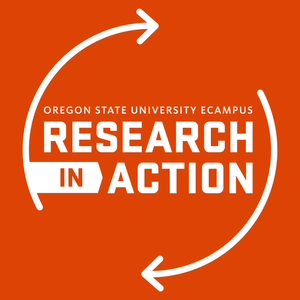
Traveling to escape, resist, and belong: centering black experiences within tourism scholarship
02/02/24 • 17 min
https://doi.org/10.1080/14616688.2024.2305869
Abstract
Examining the contemporary movement of Black Travel, the special issue explores the intersection of racial inequities, Black belonging, and tourism, drawing inspiration from articles published in the special issue “Unpacking Black Tourism”. The collection critically analyzes historical and contemporary dimensions of Black travel, challenging traditional white-centric narratives in tourism scholarship. It highlights the emancipatory and community-building aspects of Black tourism, emphasizing its role in joy, discovery, and resilience against racialized oppression. Addressing the historical neglect of racial inequity in tourism scholarship, this special issue responds to critical moments spurred by the Black Lives Matter movement, extending the political and racial reckoning into tourism scholarship and practice. The state of society is explored in the context of the ongoing global reckoning with systemic racism, connecting legislative efforts to suppress discussions of critical race theory with challenges in the travel and tourism industry. Methodological frameworks are critically analyzed, advocating for the incorporation of Critical Race Theory and counter-narrative storytelling in tourism studies thereby challenging Eurocentric ideologies and advocating for justice across tourism scholarship. The state of praxis addresses challenges in researching Black tourism and the erasure of Black voices, highlighting Tourism RESET, a collaborative initiative focused on race, ethnicity and social equity in tourism. Contributions to the special issue showcase theoretical, methodological, and political explorations of Black tourism, emphasizing intersectionality as a common theme. The manuscript concludes with a call to action, urging academia to challenge dominant ideologies, adopt anti-colonized pedagogies, and embrace diverse perspectives for a more inclusive understanding of tourism and our world.
Hosted on Acast. See acast.com/privacy for more information.
https://doi.org/10.1080/14616688.2024.2305869
Abstract
Examining the contemporary movement of Black Travel, the special issue explores the intersection of racial inequities, Black belonging, and tourism, drawing inspiration from articles published in the special issue “Unpacking Black Tourism”. The collection critically analyzes historical and contemporary dimensions of Black travel, challenging traditional white-centric narratives in tourism scholarship. It highlights the emancipatory and community-building aspects of Black tourism, emphasizing its role in joy, discovery, and resilience against racialized oppression. Addressing the historical neglect of racial inequity in tourism scholarship, this special issue responds to critical moments spurred by the Black Lives Matter movement, extending the political and racial reckoning into tourism scholarship and practice. The state of society is explored in the context of the ongoing global reckoning with systemic racism, connecting legislative efforts to suppress discussions of critical race theory with challenges in the travel and tourism industry. Methodological frameworks are critically analyzed, advocating for the incorporation of Critical Race Theory and counter-narrative storytelling in tourism studies thereby challenging Eurocentric ideologies and advocating for justice across tourism scholarship. The state of praxis addresses challenges in researching Black tourism and the erasure of Black voices, highlighting Tourism RESET, a collaborative initiative focused on race, ethnicity and social equity in tourism. Contributions to the special issue showcase theoretical, methodological, and political explorations of Black tourism, emphasizing intersectionality as a common theme. The manuscript concludes with a call to action, urging academia to challenge dominant ideologies, adopt anti-colonized pedagogies, and embrace diverse perspectives for a more inclusive understanding of tourism and our world.
Hosted on Acast. See acast.com/privacy for more information.
Previous Episode

Quo vadis research on spatial atmospheres?
Abstract
This paper offers a multidisciplinary overview on the concept and reality of affective and spatial atmospheres. Initially, the paper provides a synopsis on the disciplinary origins of the concept in philosophy, cultural geography and architecture, and then outlines how tourism research has more recently started adopting the atmosphere perspective. Research on spatial atmospheres has primarily been concerned with collective affective phenomena in space, but has also been characterised by inconclusive debates regarding where transpersonal affect ultimately emanates from (quasi-objective environmental origins vs relational body/’Leib’-centred origins). While these are important debates which have implications, the practical and empirical operationalisation of the atmosphere concept is just as relevant. This holds particularly for tourism, where providers try to engineer desired moods and ambiances. The paper concludes by identifying current gaps in the literature and outlines future directions for research into atmospheres, in the tourism field and beyond.
Hosted on Acast. See acast.com/privacy for more information.
Next Episode

Future past of tourism: critical reflection’s on the rise of tourism futures
Abstract
Given the presence of societal scale risks such as pandemics, war, climate change and artificial technology, the future of tourism will operate increasingly in a volatile, uncertain, complex and ambiguous (VUCA) world. As such the present course of tourism research is unsustainable. In this paper, the authors draw upon the evolutionary paradigm in futures studies to identify a series of historical turning points in the development of tourism futures research. These include forecasting tourism demand using quantitative methods; the appointment of the world’s first tourism scenario planner; the establishment of the European Tourism Futures Institute; the creation of academic credibility through the Journal of Tourism Futures; the effect of COVID-19 on tourism research; and finally, the accelerator effect of Artificial Intelligence (AI) on our consciousness and awareness of the future. In conclusion, the authors offer a series of futures turning points identifying the direction of tourism futures, scenario planning and foresight within the realm of tourism research.
Hosted on Acast. See acast.com/privacy for more information.
If you like this episode you’ll love
Episode Comments
Generate a badge
Get a badge for your website that links back to this episode
<a href="https://goodpods.com/podcasts/tourism-geographies-podcast-426667/traveling-to-escape-resist-and-belong-centering-black-experiences-with-58739565"> <img src="https://storage.googleapis.com/goodpods-images-bucket/badges/generic-badge-1.svg" alt="listen to traveling to escape, resist, and belong: centering black experiences within tourism scholarship on goodpods" style="width: 225px" /> </a>
Copy




